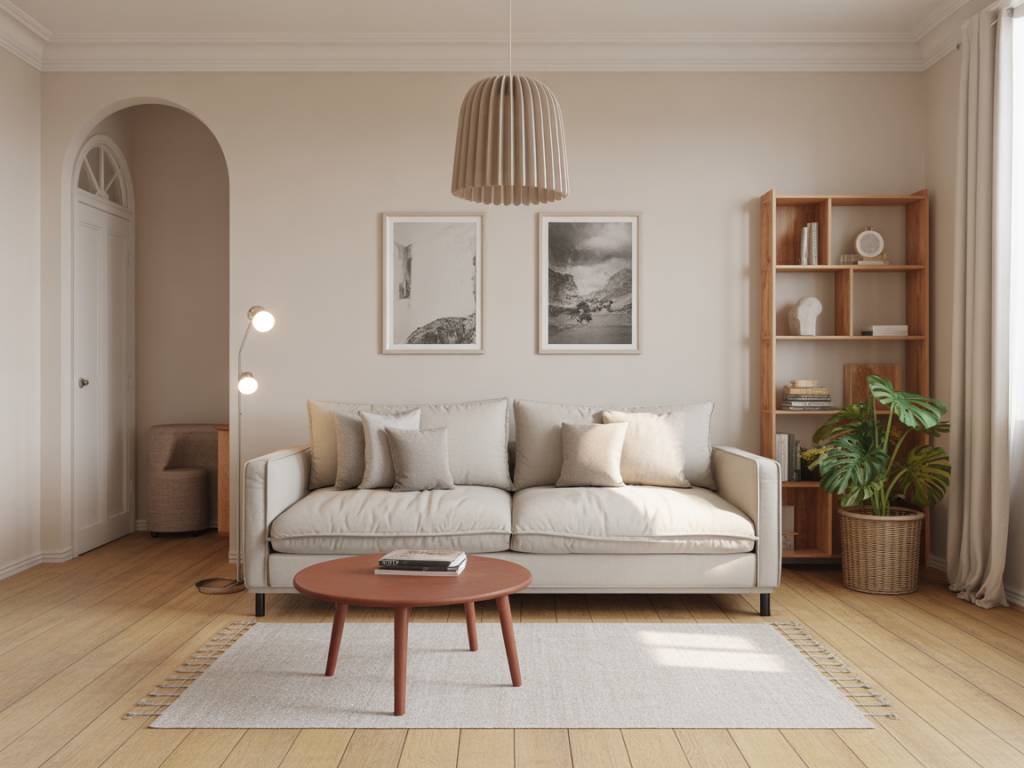Understanding Minimalism: A Lifestyle of Intention
Minimalism is often misunderstood as a design style marked by white walls, sleek furniture, and sparse decorative elements. But at its core, minimalism is a lifestyle choice — a deliberate approach to consuming less, creating mental clarity, and fostering intentional living. While minimalist home decor has gained popularity in modern interior design, the movement goes far beyond furniture and aesthetics. Adopting a minimalist lifestyle influences your habits, relationships, finances, and mental wellbeing.
Living with less doesn’t mean sacrificing comfort or beauty. Instead, it’s about surrounding yourself only with what truly adds value and letting go of the excess. This concept can permeate every area of life, transforming the way we view our possessions, our responsibilities, and even our calendar schedules.
The Psychological Impact of Living with Less
Our homes often reflect our mental state. Cluttered spaces can contribute to anxiety, lower productivity, and a sense of being overwhelmed. In contrast, a minimalist environment promotes calm, focus, and serenity.
Studies have shown that reducing material clutter can have a positive effect on psychological well-being. By simplifying your space, you eliminate unnecessary distractions, creating mental room for creativity, mindfulness, and deeper connections with the people around you. The process of decluttering can also work as a form of therapy, providing a sense of control and clarity.
Minimalism and Mindful Consumption
Minimalist living encourages you to become more aware of what you bring into your life. This includes products, digital media, and even commitments. Each item or obligation should serve a meaningful purpose.
Key principles of mindful consumption include:
- Evaluating the true necessity of each purchase
- Investing in quality over quantity
- Choosing sustainable, ethically-made products
- Reducing waste and reusing what you already own
By buying less, you often end up choosing better. This mindset shift not only helps reduce environmental impact but also leads to cost savings and increased satisfaction with what you own.
Applying Minimalism to Your Finances
The financial aspect of minimalism is one of its most compelling benefits. Living with less naturally curbs impulsive spending and fosters long-term financial health. Minimalist principles can help you:
- Create a budget based on values and priorities
- Eliminate unnecessary expenses
- Build savings through intentional choices
- Focus on experiences over material possessions
When you embrace minimalism in your spending habits, money becomes a tool for freedom rather than a source of stress. This approach can support broader goals such as travel, entrepreneurship, or early retirement.
Minimalism in Your Daily Routine
Living a minimalist lifestyle means streamlining more than your closet. It involves rethinking how you spend your time and energy. A minimalist routine cuts out the nonessential and makes space for what truly matters.
This could mean:
- Decluttering your morning routine to better start the day
- Limiting screen time or social media usage
- Focusing on one task at a time for greater productivity
- Setting clear boundaries for work and personal time
A simplified schedule encourages presence and prevents burnout. It frees you from the pressure of doing everything, so you can instead do what’s meaningful — whether that’s spending time with family, pursuing hobbies, or simply resting.
Digital Minimalism: Clearing the Virtual Clutter
In a world of constant connectivity, digital clutter is as invasive as physical clutter — sometimes even more so. Notifications, emails, and endless content can fragment your attention and contribute to mental fatigue.
Digital minimalism involves reassessing your technology use to ensure it aligns with your values. Key practices include:
- Unsubscribing from unnecessary newsletters
- Deleting unused apps from your phone
- Organizing digital files and decluttering your desktop
- Taking scheduled breaks from social media
By simplifying your digital life, you regain control over your attention and can focus more deeply on real-world connections and activities.
Minimalism and Sustainable Living
Minimalism and sustainability often go hand in hand. By prioritizing quality and longevity over disposability, minimalist living naturally reduces environmental impact. Owning fewer things also translates to lower energy consumption and less waste.
Consider these sustainable habits aligned with minimalist values:
- Shopping secondhand or choosing items with minimal packaging
- Embracing a capsule wardrobe rather than fast fashion trends
- Reusing, repairing, and recycling instead of replacing
- Consciously reducing food waste and single-use items
When you own less and consume responsibly, each item you keep carries more value — practically and emotionally.
Living with Less in Relationships
A minimalist lifestyle also encourages simplicity in social and emotional life. It allows you to cultivate fewer, but deeper relationships. Time and energy are finite, and minimalism teaches you to invest them intentionally.
By saying no to draining commitments and superficial connections, you can create space for meaningful conversations and shared experiences. Minimalism promotes honesty, presence, and value-driven communication in both personal and professional settings.
Living simply enables you to show up more fully for those who truly matter.
Getting Started with a Minimalist Lifestyle
Embracing minimalism doesn’t require a dramatic transformation overnight. It’s about making small, consistent changes that align your environment and habits with your values. You can start with one area — like your wardrobe, your finances, or your screen time — and build from there.
Here are a few actionable steps to begin:
- Do a single drawer or closet purge
- Track spending for a month and assess shopping habits
- Create a daily routine that prioritizes rest and intentional action
- Unfollow social media accounts that don’t inspire or serve you
Minimalism isn’t about perfection. It’s a personal and evolving process that strives for more clarity, purpose, and freedom — not merely fewer things. As you integrate these practices into everyday life, you’ll likely find that minimalism isn’t limiting at all. It’s liberating.

